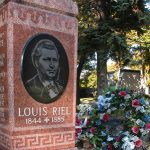Our first Duke of Burgundy was born in 1342, a son of John ‘the Good’. There were so many dukes of this region of France that the theory that each earned a nickname because it was thus easier to identify each one is probably right. As a youth he fought at Poictiers against the English, was captured along with his father, and ransomed.
Philip was the fourth son of John the Good, who was was actually King of France when Philip was made Duke of Burgundy 1363; he was twenty-one years old. Six years later he married the heiress of the Count of Flanders. He behaved well towards his father-in-law, stopping a revolt with the usual revolting methods in 1380 when the burghers or yeomen of Flanders arose in discontent. The uprising ended in 1342 with the death of 26,000 Flemings. This massacre of dissidents may have been the reason for the nickname ‘the Bold’. There were not only connotations of bravery in the word ‘bold’ in the fourteenth century, but also lack of mercy.
When the Count of Flanders died two years later, not unduly disturbed by the murder of his countrymen, Philip became the new Count. It was possibly his conscience that encouraged him to become a patron of commerce and the arts.
While the King of France (Charles VI) was in his tiny minority Philip was virtually ruler of all France, but when the King went mad in 1392 Philip had to fight for power with the Orléans family (q.v.), led by Louis the King’s brother. The eternal quarrel between the Burgundians and the Orléanists was carried on after Philip the Bold’s death in 1404 by his son, John ‘the Fearless’. Philip the Bold was the founder of the Burgundian House of Valois.
Philip the Good (Philip III) was born in 1396, at the end of a century that had been more than turbulent. His first act as Duke of Burgundy was to create an alliance with Henry V of England, signed by all as the Treaty of Troyes. In this deal Queen Isabella of France named Henry V as successor the French throne. For many centuries afterwards Kings of England also called themselves ‘king of France’. Actual rulers of France objected to this.
Henry V married a Princess of France, and had issue (Henry VI), but he died young (q.v.) and his widow formed an attachment with a Welshman called Tudor. This disastrous state of affairs resulted in the Tudor Dynasty (q.v.). The weak and timid Henry VI was one of the reasons for the English Wars of the Roses.
By the early years of the 15th century Philip had ‘acquired’ Namur,Holland and Zeeland, followed byBrabant and five years later Luxemburg. He had under Burgundian control three bishoprics, Liège, Cambrai and Utrecht. He got all this by inheritance, marriage, purchase or conquest, and together they made a formidable ‘state’.
In 1435 The Treaty of Arras released Philip the Good from having to make homage to the French King; he became almost entirely free of royal control. But much of his great power came from his apparently unbreakable alliance with England; he thought himself the best ally England had. The King of France, however, had other ideas. He broke the already shaky alliance betweenFrance and England and from 1435 Philip the Good and the Burgundians found themselves in alliance withFrance against England.
War meant more taxes and whenBurgundyimposed heavy taxation on its citizens there was a revolt that started in Ghent. It was put down, bloodily as always, and 20,000 rebels died in the fighting (1454).
On the good side of things Burgundybecame the most civilized and prosperous in all Europe under Philip the Good. He founded orders in chivalry, among them the Order of the Golden Fleece. He and his money patronized several Flemish painters. He died at seventy-one in 1467.









Leave A Comment